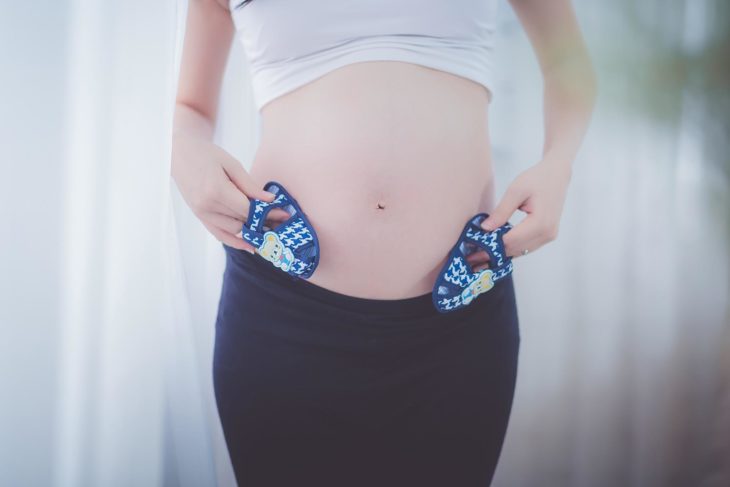The first trimester is a great time, but it is at this stage that a pregnant woman has the most problems that can accompany her throughout pregnancy.
If it is time to know your pregnancy due date, click here, and use the pregnancy calculator, then it’s time to think about the first period. The early stages of pregnancy are different for all expectant moms. During the first trimester, you may still have periods that are not menstruating. It is because of these signs that women often do not immediately realize that they are pregnant. One of the symptoms of pregnancy is the urge to urinate more often as the enlarged uterus presses on the bladder. Also, hormones change. This increases your progesterone levels in your blood, and you will want to drink more and more.
Contents
Body changes
Most women notice changes in the shape of their breasts and new sensations: breasts are enlarged, they may cause tingling, throbbing, or pain. This is related to the appearance of mammary glands. Blood flow to the breasts increases and may cause veins to develop. For some women, breasts become more sensitive at the very beginning of pregnancy.

Source: medicalnewstoday
Another typical symptom is rapid fatigue
It occurs after the first menstrual period and disappears by the fourteenth to the twentieth week of pregnancy. A straightforward remedy to prevent this ailment – sleep more! Find time for it, whether you’re working or staying at home. Optimal sleep time during the first trimester is about ten hours. Another consequence of increased progesterone is melted limbs and constipation. Progesterone affects the smooth muscle blood flow, causing legs to dissolve.
Also, more blood flows into the uterus. It can even cause you to faint as your blood pressure drops. Progesterone also acts on the intestine, slowing down the digestion of food. Include as much liquid (about 6-8 glasses) in your diet as possible and avoid high-fat foods. By the way, plum juice can do wonders. Walks and light exercise also help. Unfortunately, during the first trimester, expectant mothers sometimes fail to avoid the ringworm, and they often feel pain in the sacrum.
Morning sickness
In early pregnancy, women often feel nausea. In the first trimester, 60-80% of morning sickness suffers from nausea. Be aware that morning sickness starts in the morning and may last 24 hours in the first weeks of pregnancy. You can prevent nausea by getting dry products, sunflowers, or juice before you get out of bed. In more severe cases, nausea begins 6-8 weeks after menstruation and continues to intensify until the fourteenth week, and then suddenly disappears or subsides.
Nausea can also be caused by the appearance or smell of a particular food, though these things have not been disgusting in the past: cigarettes, coffee, meat, and sometimes salads! Nausea is caused by changes in hormones, affecting gastric function and acidity. Sometimes low blood sugar may cause nausea. If you have diabetes, vomiting can be an alarm. Persistent nausea is dangerous to a woman’s health because of the elimination of nutrients and water from the body. To avoid dehydration, you should drink as much as possible, but at a moderate frequency. If you feel sick more than three times a day, be sure to consult your doctor.

Source: healthywomen
Nutrition and weight gain
While waiting, proper nutrition is essential. It would be best to visit a nutritionist and establish a diet with him. Just consult your gynecologist or obstetrician before doing so. The modern pregnant woman is usually working, stress-free, suffering from nausea, so these diets should be taken into account in the diet. To avoid headaches in the evenings, a cup of morning coffee will certainly not hurt. And eating one chocolate bar will not affect the developing fruit. If you stop in a car jam, you will eat one sandwich; the world won’t turn upside down. It should not be forgotten that many jobs are not suitable for pregnant women, not to mention a special diet.
The weight of a future mom is inevitably increasing. The most important thing to keep in mind is that you should not go on a diet that is exhausting while you are waiting. On the other hand, even though you are two in one body, that does not mean that you have to eat for two. Nutrition during pregnancy is too complicated for you to rely solely on books or articles. Age, weight, pre-existing illnesses, and the characteristics of a developing pregnancy all influence the well-being of a pregnant woman. Besides, the menu can be adjusted and changed throughout pregnancy.
Physical exercises
Gymnastics and exercise are very important, but in prescribed quantities. Your doctor will decide what kind of physical activity you need. Some women are advised to increase activity and exertion while others are advised to decrease. Currently, there is no shortage of exercises for pregnant women: they focus on specific muscle groups, and training is balanced.
One of the benefits of exercising is physically preparing for childbirth. Whatever you choose, it is best to use under the supervision of a trainer.

Source: AdobeStock
Potential difficulties
If something goes wrong in the first trimester, there are two possible scenarios: miscarriage or ectopic pregnancy. In both cases, seek medical attention or call an ambulance as soon as possible.
Miscarriage
The threat of miscarriage It is significant for women to be aware of the threat of miscarriage and be prepared for it, not to panic. Different causes can cause miscarriage. Some studies confirm that approximately 60% of miscarriages occur due to genetic abnormalities. Your body then undergoes “genetic engineering” to properly handle the emerging embryo. More than 90 percent of women who have had a miscarriage and successfully give birth the next time they become pregnant. Miscarriage is a complication of pregnancy, not an indicator of infertility. It is recommended to get pregnant again after three to six months.
The risk of stillbirth varies according to age: it is 10% for women under 30, and for women over 45, it increases to 50%. If you have had a miscarriage twice, you should do more research on why the embryo does not become established.
Possible causes:
- hormone deficiency,
- uterine abnormalities,
- genetic disorders,
- rhesus conflict.
The main symptom of a miscarriage is blood flow. However, it is important to remember that not all blood flow is a threat of miscarriage. Various smears, discharge, blood stains can occur throughout pregnancy. If this bleeding gets worse, you should see your doctor. Other symptoms usually accompany severe bleeding: colic, abdominal pain, elevated temperature, weakness, nausea. An unusual odor of blood or mucus may appear. If bleeding persists for more than three days, be sure to seek medical attention.

Source: parentcircle
Ectopic pregnancy
An ectopic pregnancy occurs when the fetus does not anchor in the uterus and begins to develop in the fallopian tubes. This is very dangerous because a woman’s life is threatened by a lack of fallopian tubes. The classic signs of ectopic pregnancy are severe pain in the abdomen or side. It can start as a blunt and get stronger. Often such pain can occur in the neck and shoulders. The problem of ectopic pregnancy occurs when a woman does not realize she is pregnant until the above symptoms occur.
Therefore, if you are not pregnant, or are planning to become pregnant, and you are experiencing this type of pain, seek medical attention immediately.
